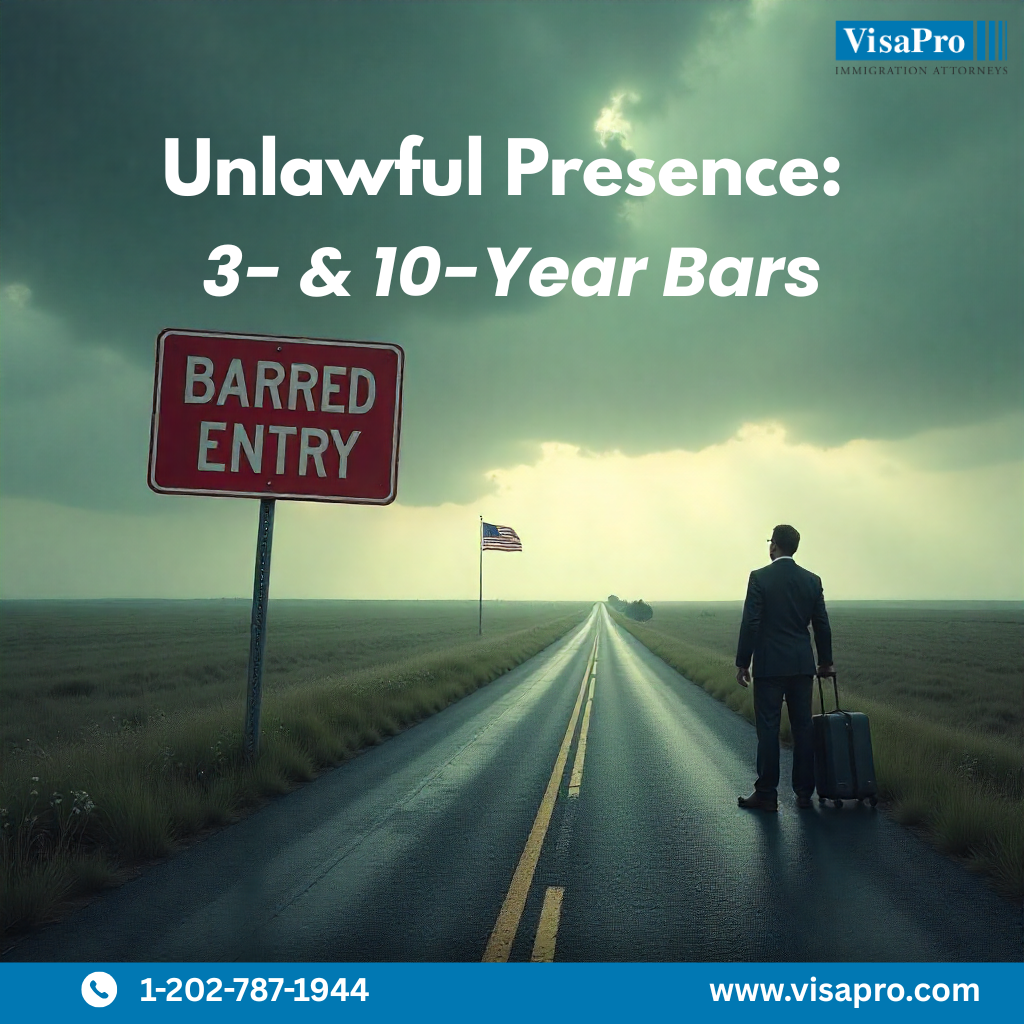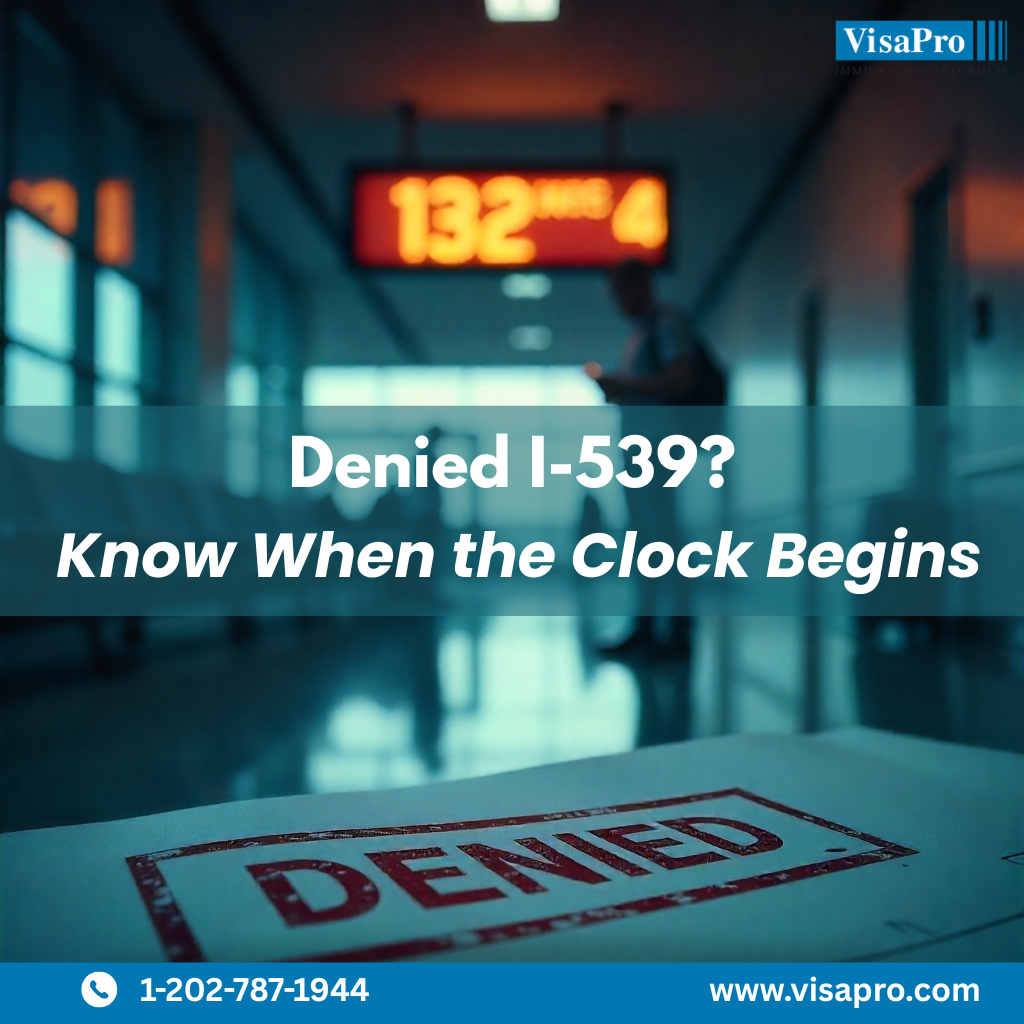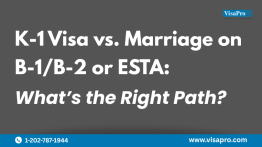Quick Summary:
You have filed an I-539 to change your status from B-2 to F-1. Unfortunately, your attorney made a mistake in the application that has now led to the denial. You are now past your I-94 expiration date and may now be worried about unlawful presence, the possibility of future reentry, or whether you can appeal or re-file with a Nunc pro Tunc request. This guide explains what really happens when your I-539 is denied, how unlawful presence is calculated, and what steps you can take to protect your immigration future.
Understanding What Happens When the Form I-539 Is Denied
If your I-539 is denied, it’s important to remember that you generally begin to accrue unlawful presence from the date of denial, not retroactively from the date your requested stay expired or your original I-94 expiration date. This is true as long as the Form I-539 request to extend or change status was a non-frivolous application and was timely filed.
In most cases, if you remained in the U.S. while your I-539 was pending, you were considered in a “period of authorized stay.” This means unlawful presence usually starts only after USCIS issues the denial notice. However, the situation can be complicated if the denial notice says otherwise or if errors occurred in filing.
Many applicants are confused because they assume that once their application to extend or change status is denied, they are automatically accruing unlawful presence. This is not always true. For example:
- Case Example 1: A potential student from Korea applied to change status from B-2 to F-1 using Form I-539 which was later denied. The student’s B-2 period of stay expired while waiting for USCIS, but her application was filed before it expired. Because she timely filed, unlawful presence only began once USCIS denied the case, not when her B-2 period of stay expired.
- Case Example 2: A tourist from Israel filed an I-539 requesting an extension of their B-2 status. USCIS denied the application 15 days after his original six-month period of stay expired. Since the I-539 was timely filed and was non-frivolous, unlawful presence started only from the denial date.
- Case Example 3: A professional from Brazil received a denial notice that incorrectly claimed unlawful presence started when her six months ended. Her attorney successfully challenged it, pointing to USCIS guidance clarifying that pending I-539s keep you in authorized stay until adjudication is complete.
VisaPro Tip: Always read your denial notice carefully and confirm how unlawful presence is being counted. Even small wording differences can have big consequences.
What are the consequences of Unlawful Presence?
Accrual of unlawful presence can have long-lasting consequences. Therefore, it’s critical to keep track of exactly how many days of unlawful presence have accrued or accumulated, especially in cases where you have recently received a denial.
- Unlawful presence of more than 180 days triggers a 3-year re-entry bar if you leave the U.S.
- Unlawful presence of more than 365 days triggers a 10-year re-entry bar if you leave the U.S.
- Unlawful presence less than 180 days does not trigger a reentry bar.
- If you leave the U.S. before reaching 180 days, you typically can apply for another visa without facing a 3- or 10-year bar. However, the overstay may still affect your ability to obtain visa approval.
- CBP officers at the border may still question your history of overstay, so documentation and legal explanation are crucial.
VisaPro Tip: Track the exact date of denial and count days carefully. Leaving well before 180 days is critical to avoid long-term consequences.
Will This Affect My Future Reentry To The U.S.?
Yes, but the impact depends on how long you overstay and how well you explain the circumstances.
If you overstayed visa time due to a lawyer’s error or USCIS delay, and your unlawful presence is less than 180 days, you will not face a bar. However, the visa you used to enter the U.S. is considered automatically void or revoked.
- Example: A visitor from Thailand visits the U.S. on a B-2 visa and was granted a 6 month stay. The visa itself is valid for at least 5 more years. Before their stay expired, they filed an extension of status with the Form I-539. Their I-539 was denied after their 6 months stay expired. Once their I-539 expires, they begin to accrue unlawful presence. However, as long as they leave before they accrue 180 days of unlawful presence, they should not be barred from re-entry to the U.S. Unfortunately, this person will need to apply for a new B-2 visa in order to visit the U.S. because their B-2 visa is no longer valid for travel.
After a denial and overstay, at future visa interviews or ports of entry, you may be asked why you stayed beyond the period requested.
- Example: A visitor overstayed 40 days because her I-539 denied late. When reapplying for a B-2 visa, she explained with evidence that she had acted in good faith. She was approved after showing her timely filing receipts.
- Example: Another traveler left at 190 days of unlawful presence. Despite having strong family ties, she was barred for 3 years and needed a waiver to return.
VisaPro Tip: Keep copies of your I-539, USCIS receipt notices, and denial letter. These documents prove you acted responsibly and can help during visa interviews.

Can I Use Nunc Pro Tunc To Fix An I-539 Denied Overstay?
Yes, in rare cases, you may request nunc pro tunc relief, a legal request asking USCIS to approve your application retroactively as if it were approved on time.
However, nunc pro tunc is not guaranteed. USCIS usually grants it only when:
- The delay or mistake was not your fault (e.g., attorney error or government error).
- You acted in good faith.
- There is a compelling reason why fairness requires backdating approval.
For example:
- Case Example: A student’s change of status was denied due to a lawyer’s clerical error. The student re-filed the change of status request and USCIS approved the request nunc pro tunc because the student was able to show that the only reason for denial was due to the attorney’s clerical error, something that was beyond her control.
- Case Example: A tourist overstayed their B-2 period of stay and then filed an extension of stay after their I-94 had expired. USCIS denied the nunc pro tunc request since the visitor could not show why filing late was due to circumstances beyond their control.
VisaPro Tip: If your overstay or denial is due to a lawyer’s mistake, consult an experienced immigration attorney immediately to explore filing or re-filing via nunc pro tunc or appeal options.
Does A Lawyer’s Mistake Protect Me from Consequences?
No, unfortunately, USCIS holds you responsible for your own status, even if your attorney made an error.
That said, USCIS and immigration judges sometimes show leniency when the evidence clearly proves the mistake was beyond your control. For example:
- Incorrect filing address used by the attorney
- Missing signatures or incorrect forms filed by counsel
- Failure to notify you of USCIS requests for evidence
VisaPro Tip: If your attorney made a mistake, gather proof, emails, receipts, communications, and seek a second legal opinion immediately. You may still be able to protect your immigration future.
Checklist: What To Do If Your I-539 Is Denied After Your Period of Stay Has Expired
- Check the denial notice for wording on unlawful presence.
- Count your days from the date of denial, not the date your six months ended.
- Leave the U.S. before 180 days of unlawful presence to avoid bars.
- Collect evidence proving you filed on time and acted in good faith.
- Consider nunc pro tunc if the denial was caused by lawyer or USCIS error.
- Consult an experienced immigration attorney before making travel or reentry plans.
Conclusion: Don’t Let An I-539 Denial Define Your Future
Having your I-539 denied after waiting months can feel devastating, especially when the mistake wasn’t yours. The good news is that unlawful presence usually begins at denial, not before, meaning you still have options to protect your ability to return to the U.S.
VisaPro has helped countless clients facing I-539 denied overstay issues, guiding them through nunc pro tunc requests, appeals, and future visa strategies. Don’t risk your immigration future. Schedule your free strategy call with VisaPro today and let us help you turn a setback into a comeback.
Frequently Asked Questions (FAQ)
1.Does a change of status denied mean I am unlawfully present immediately?
Yes, once your change of status is denied, unlawful presence usually starts the next day if your original period of stay has already expired.
2.Can a nunc pro tunc request fix a Form I-539 denied because of lawyer’s mistake?
Yes, nunc pro tunc may allow USCIS to retroactively approve your case if the denial was due to attorney error. It’s rare, but possible with strong evidence.
3.I overstayed my time because USCIS took too long. Will I be banned from reentry?
No, if you filed an application or petition to extend your stay in a timely manner, then you are most likely considered to have been in “authorized stay”, even if your underlying status has expired. Once the application is denied, however, you begin to accrue unlawful presence and can trigger a bar if you remain over 180 days and then leave.
4.How do I know if I accrued unlawful presence less than 180 days or more?
Count from the day after your I-539 denial until the day you leave the U.S. If it’s fewer than 180 days, you avoid the 3-year bar. More than 180 days triggers the bar, and more than 365 days triggers the 10-year bar. It’s best to speak with an immigration attorney to confirm that your calculations are correct to avoid costly mistakes.
Need help deciding whether to pursue nunc pro tunc re-filing, file an appeal, or plan a safe reentry strategy?
VisaPro has successfully guided individuals through the most complex I-539 denied overstay situations, protecting immigration status, securing USCIS approvals, and avoiding costly reentry mistakes. Schedule your strategy call with VisaPro today.
What VisaPro Customers Are Saying
The US [B-1] Visa has always been a tough ride, and being denied a few times it makes it even worse. But thanks to VisaPro and their meticulous processing I was granted a Visa. I would like to thank you and all the people involved in making this a success. I would like to recommend VisaPro to all those who seek peace of mind and hassle free Visa processing.”




 Manas Bhat, Director Operations, First Houston Mortgage India
Manas Bhat, Director Operations, First Houston Mortgage India


